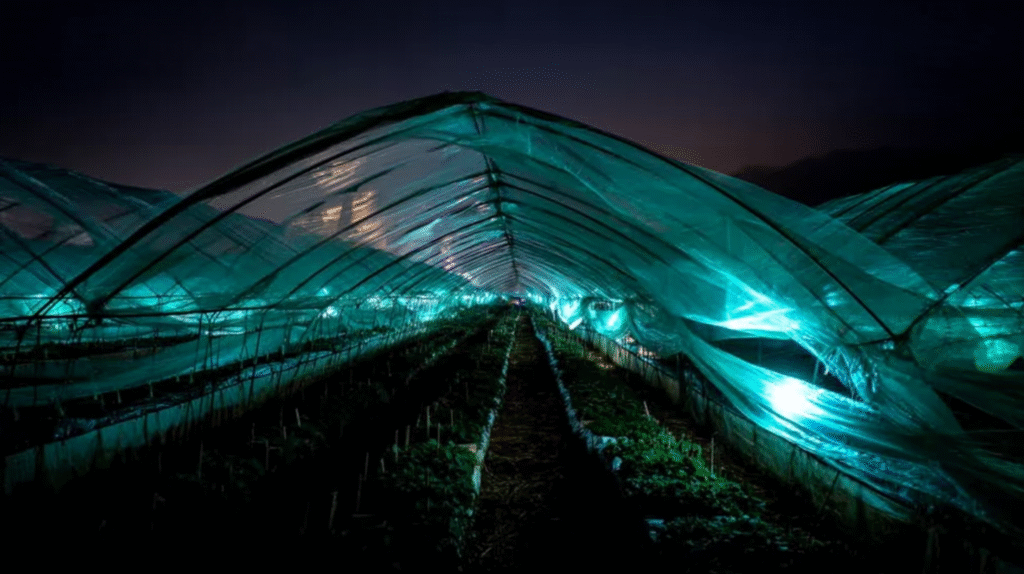Scottish berry producer Angus Soft Fruits has turned to UV-powered robots to keep powdery mildew at bay and safeguard yields after one of the hottest—and most humid—summers on record. The company’s grower co-operative, Angus Growers, has been working with Saga Robotics to deploy the autonomous ‘Thorvald’ platform across farms in Angus and the surrounding region.
Operating after sunset (because UV works best—and is safest—when no workers or pollinators are about), the robots pass down the table-top strawberry rows delivering precise doses of ultraviolet-C (UV-C) light. That UV-C disrupts the DNA of powdery mildew spores, reducing infection pressure without relying solely on fungicide sprays—an increasingly attractive proposition as growers face tighter rules, resistant pathogens, and see-saw weather patterns.
The technology came into its own this season: hot, dry days were followed by humid spells—perfect mildew weather. Angus Soft Fruits says the robots provided an effective, sustainable line of defence that protected fruit quality and helped lift yields. “By using robots to deliver UV treatment, we’ve been able to manage this without relying solely on chemicals. It not only protects crop quality, but it also helps reduce input costs and supports our long-term sustainability goals… [and] has also improved plant health and yields,” explained Angela Porchez, General Manager at Angus Growers.
Behind the scenes, the partnership reflects a wider scale-up of UV-C disease control in UK soft fruit. Saga Robotics has expanded its service hubs—including one in Scotland—as more growers adopt the approach for mildew control in strawberries. Trials and commercial seasons elsewhere in the UK have shown UV-C can markedly cut fungicide use while maintaining disease control—useful as part of integrated pest management (IPM) rather than a silver bullet.
Why UV—and why now? Scientific and industry evidence shows UV-C can inactivate a range of plant pathogens, with strawberries and grapevines among the most studied crops. In practice, timing and dose matter: short, targeted night-time treatments are designed to hit the pathogen without harming the plant or beneficials, and the robots’ autonomy keeps applications consistent across long tunnels.
For Angus Soft Fruits—best known for its AVA Berries brand—the robots are part of a broader, future-focused toolkit that includes data, forecasting and low-impact production methods. With climate volatility unlikely to let up, robotic UV treatment gives growers a repeatable, residue-free way to keep mildew in check, protect shelf-life and presentation, and support returns for Scottish growers. Or, put another way: a little night light now, fewer headaches later.


